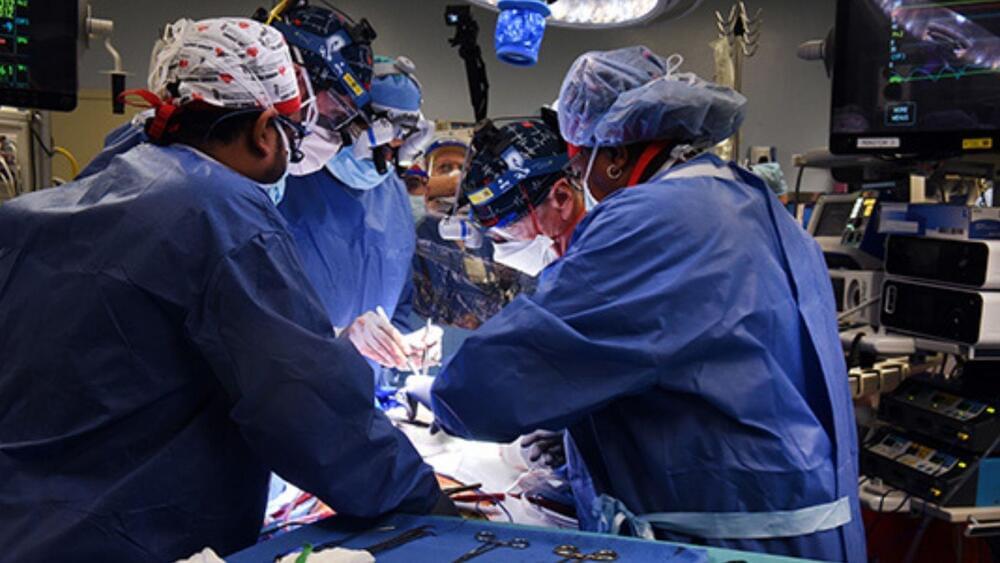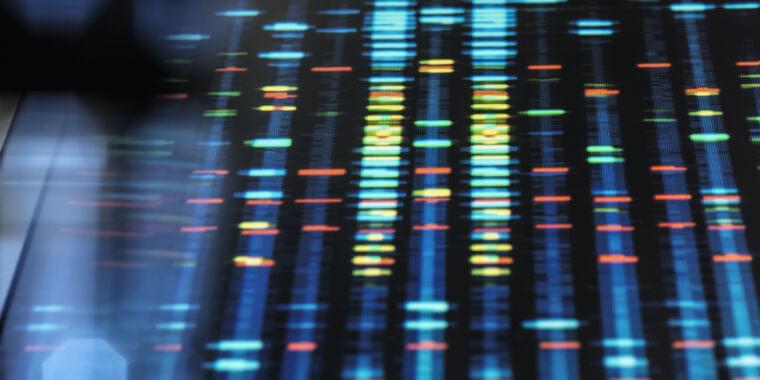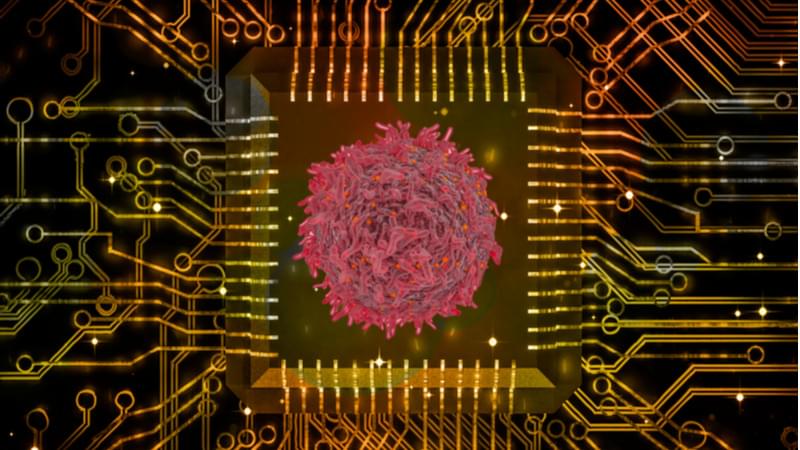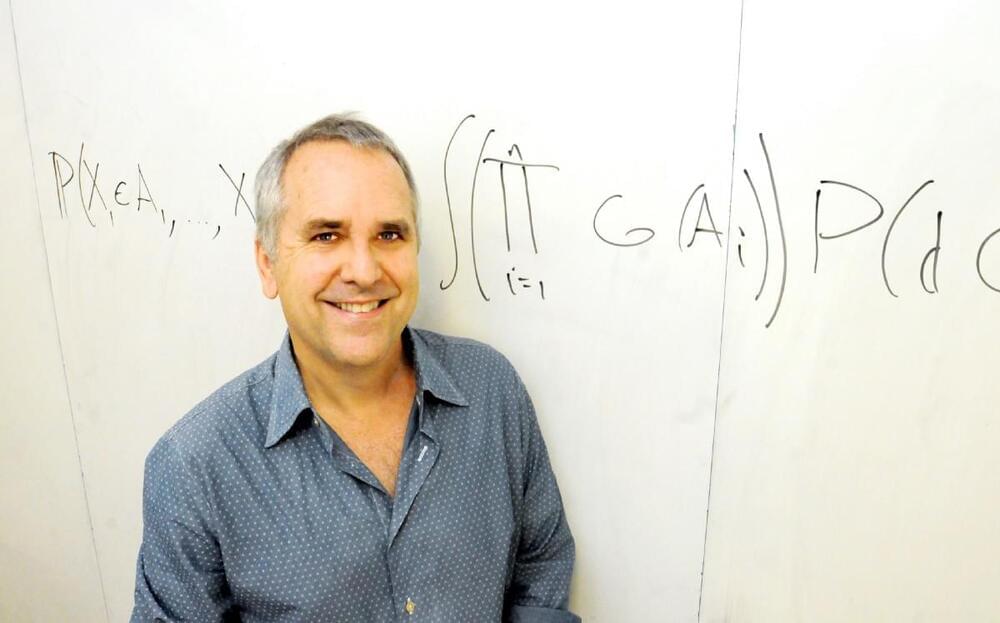In a city in Brazil, male mosquitoes were released that expressed a gene that meant their female offspring, which bite and transmit infections, couldn’t survive.



Here is what the ECG reports of the first patient with the pig heart say.
In January this year, the heart of a genetically modified pig was transplanted into a human for the first time. The patient, David Bennett, managed to survive for two months with the pig heart, and this unique organ transplant operation led to various exciting findings and further research work.
One recently published research reveals that the electrical conduction system (network of cells, signals, and nodes in a heart that collectively controls heart functions and heartbeat) of the genetically modified pig heart differs from that of an ordinary pig’s heart.
David Bennett, the 57-year-old man who became globally known as the first human to receive a genetically modified pig’s heart as a transplant has died in the hospital where he underwent the transplant and was recovering, according to a press release.
Bennett was first admitted to the University of Maryland Medical Center (UMMC) in October last year with arrhythmia — the irregular beating of the heart, which in his case had become life-threatening. The doctors placed him on extracorporeal membrane oxygenation (ECMO), commonly known as a heart-lung bypass machine to keep him alive.

Summary: A genetic form of frontotemporal dementia is associated with abnormal lipid accumulation in the brain fueled by disrupted cell metabolism. The findings could pave the way for new targeted therapies for FTD.
Source: Harvard.
Dementia encompasses a range of neurodegenerative conditions that lead to memory loss and cognitive deficiencies and affect some 55 million people worldwide. Yet despite its prevalence, there are few effective treatments, in part because scientists still don’t understand how exactly dementia arises on a cellular and molecular level.

Matthew Cobb is a zoologist and author whose background is in insect genetics and the history of science. Over the past decade or so, as CRISPR was discovered and applied to genetic remodeling, he started to get concerned—afraid, actually—about three potential applications of the technology. He’s in good company: Jennifer Doudna, who won the Nobel Prize in Chemistry in 2020 for discovering and harnessing CRISPR, is afraid of the same things. So he decided to delve into these topics, and As Gods: A Moral History of the Genetic Age is the result.
Summing up fears
The first of his worries is the notion of introducing heritable mutations into the human genome. He Jianqui did this to three human female embryos in China in 2018, so the three girls with the engineered mutations that they will pass on to their kids (if they’re allowed to have any) are about four now. Their identities are classified for their protection, but presumably their health is being monitored, and the poor girls have probably already been poked and prodded incessantly by every type of medical specialist there is.

Turn.bio has announced that its proprietary cellular reprogramming technology was able to significantly increase the proliferative and cytotoxic potential of premanufactured CAR-T cells in vitro.
Turn.bio, a developer of mRNA-based cellular reprogramming technologies, has announced preliminary results from its current trial. The announcement was made by the company’s co-founder, Prof. Vittorio Sebastiano, at the New Frontiers of RNA Nanotherapeutics conference at Houston Methodist Research Institute. These results show that the company’s proprietary Epigenetic Reprogramming of Aging (ERA) technology greatly increases the fitness of CAR-T cells, which are widely used in modern immunotherapy.
T cell exhaustion is a big problem.
Join us on Patreon!
https://www.patreon.com/MichaelLustgartenPhD
TruDiagnostic Discount Link (Epigenetic Testing)
CONQUERAGING!
https://bit.ly/3Rken0n.
Bristle Discount Link (Oral microbiome quantification):
ConquerAging15
https://www.bmq30trk.com/4FL3LK/GTSC3/
Cronometer Discount Link (Daily diet tracking):
https://shareasale.com/r.cfm?b=1390137&u=3266601&m=61121&urllink=&afftrack=
If you’d like to support the channel, you can do that with Buy Me A Coffee!
https://www.buymeacoffee.com/mlhnrca.
The Excel file to calculate Levine’s Biological Age is embedded in this link from my website:

Artificial Intelligence (AI) is the mantra of the current era. The phrase is intoned by technologists, academicians, journalists and venture capitalists alike. As with many phrases that cross over from technical academic fields into general circulation, there is significant misunderstanding accompanying the use of the phrase. But this is not the classical case of the public not understanding the scientists — here the scientists are often as befuddled as the public. The idea that our era is somehow seeing the emergence of an intelligence in silicon that rivals our own entertains all of us — enthralling us and frightening us in equal measure. And, unfortunately, it distracts us.
There is a different narrative that one can tell about the current era. Consider the following story, which involves humans, computers, data and life-or-death decisions, but where the focus is something other than intelligence-in-silicon fantasies. When my spouse was pregnant 14 years ago, we had an ultrasound. There was a geneticist in the room, and she pointed out some white spots around the heart of the fetus. “Those are markers for Down syndrome,” she noted, “and your risk has now gone up to 1 in 20.” She further let us know that we could learn whether the fetus in fact had the genetic modification underlying Down syndrome via an amniocentesis. But amniocentesis was risky — the risk of killing the fetus during the procedure was roughly 1 in 300. Being a statistician, I determined to find out where these numbers were coming from.

Werner Syndrome and Hutchinson Gilford Progeria Syndrome are two examples of the rare genetic disorders known as progeroid syndromes that cause signs of premature aging in children and young adults. Patients with progeroid syndromes have pathologies and symptoms that are often linked to aging, including osteoporosis, cataracts, heart disease, and type II diabetes.
This aging is characterized by the gradual loss of nuclear architecture and an underlying tissue-specific genetic program, but the causes are unclear. Scientists have discovered a potential new target for treating these syndromes by preventing nuclear architecture loss.
The finding is a turning point in cancer research.
Two major studies published in Nature.
Phospho Biomedical Animation.
The revelation shows that epigenetics, cells controlling gene activity, play a crucial role in the development of cancer. Cancers are usually tested for DNA mutations alone, which can miss this level of control, thereby failing to predict how cancers may behave and respond to treatment.

There now genetic testing of breast cancer for men and women. The mutations in BRCA1 and BRCA2 Genes will cause cancer. I think in the future though error correction in the dna code could lead to the cure using crispr.
The contribution of BRCA1 and BRCA2 to inherited breast cancer was assessed by linkage and mutation analysis in 237 families, each with at least four cases of breast cancer, collected by the Breast Cancer Linkage Consortium. Families were included without regard to the occurrence of ovarian or other cancers. Overall, disease was linked to BRCA1 in an estimated 52% of families, to BRCA2 in 32% of families, and to neither gene in 16% (95% confidence interval [CI] 6%–28%), suggesting other predisposition genes. The majority (81%) of the breast-ovarian cancer families were due to BRCA1, with most others (14%) due to BRCA2. Conversely, the majority of families with male and female breast cancer were due to BRCA2 (76%). The largest proportion (67%) of families due to other genes was found in families with four or five cases of female breast cancer only. These estimates were not substantially affected either by changing the assumed penetrance model for BRCA1 or by including or excluding BRCA1 mutation data. Among those families with disease due to BRCA1 that were tested by one of the standard screening methods, mutations were detected in the coding sequence or splice sites in an estimated 63% (95% CI 51%–77%). The estimated sensitivity was identical for direct sequencing and other techniques. The penetrance of BRCA2 was estimated by maximizing the LOD score in BRCA2-mutation families, over all possible penetrance functions. The estimated cumulative risk of breast cancer reached 28% (95% CI 9%–44%) by age 50 years and 84% (95% CI 43%–95%) by age 70 years. The corresponding ovarian cancer risks were 0.4% (95% CI 0%–1%) by age 50 years and 27% (95% CI 0%–47%) by age 70 years. The lifetime risk of breast cancer appears similar to the risk in BRCA1 carriers, but there was some suggestion of a lower risk in BRCA2 carriers.